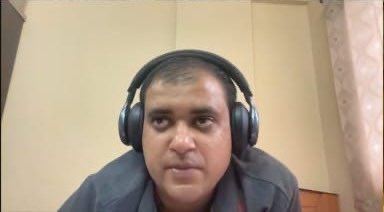![]()

Atul Subash’s story is one that has captured the attention of many, shining a spotlight on the darker aspects of legal systems and personal relationships in India. His case has become emblematic of the struggles faced by individuals dealing with false allegations and the inefficiencies of the judicial system.
Background and Allegations
Atul Subash was an AI/ML expert, known in his circles not just for his technical prowess but also for his advocacy for male victims of false allegations. His life took a dark turn when he was accused of various charges, including murder, unnatural sex, and violations under Section 498A of the Indian Penal Code, which deals with cruelty by a husband or his relatives towards his wife. These allegations were part of what many saw as a series of false cases lodged against him over two years, leading to an exhausting 120 court hearings.
The Harsh Reality of Legal Battles
The legal battles Atul faced were not just about the courtroom; they reflected a broader systemic issue. Despite his regular financial support, which included payments of Rs 40,000 per month, his wife allegedly demanded an exorbitant settlement of Rs 3 crore, showing the extreme financial and emotional strain placed on him. Furthermore, she demanded Rs 2 lakh per month for child support, which seemed disproportionate given the existing support he was already providing.
Atul Subhash’s last tweet(X) where he mentioned “@elonmusk @realDonaldTrump @DonaldJTrumpJr @TeamTrump I will be dead when you will read this. A legal genocide of men happening in India currently.”
@elonmusk @realDonaldTrump @DonaldJTrumpJr @TeamTrump I will be dead when you will read this. A legal genocide of men happening in India currently.
— Atul Subhash (@AtulSubhas19131) December 8, 2024
https://t.co/wMGmBfoKxd
The Psychological Toll
The relentless legal and personal pressure led to a significant psychological impact on Atul. His suicide note, a poignant 23-page document, was not just a cry for help but a detailed recounting of his ordeal. In this note, he expressed how the judiciary, in collusion with his wife and in-laws, had systematically harassed him, leading to his desperate situation. This document also served as his final stand, trying to leave behind a record of his truth in a system where he felt unheard and unjustly treated.
The Final Act
Before taking his own life, Atul recorded a video lasting an hour and a half, laying bare his last wishes and his despair. In this video, he accused the judicial system of failing him, suggesting that it was not depression that defeated him but betrayal by a system supposed to serve justice. His wife’s alleged statement in front of a judge, suggesting he commit suicide, was the final straw in his narrative of being pushed to the edge.
Public Reaction and Calls for Change
This part of our legal system needs a complete overhaul. So many innocent men and their families are being tortured. Imagine what #AtulSubhash must be going through during his last moments.#JusticeForAtulSubhash pic.twitter.com/y0WTsQMOfB
— Pranav Mahajan (@pranavmahajan) December 10, 2024
This is disturbing to the core!
— Harsha (@harshaag_15) December 10, 2024
The pain in his voice speaks volumes about the harassment he has been facing since years.
Reading all these makes me feel ashamed as a woman for how low women can fall to just for money!!#JusticeforAtulSubhash
pic.twitter.com/70YMpq4zBZ pic.twitter.com/MbuZ6t2HwN
The public reaction to Atul’s story was one of shock, sympathy, and anger. Social media platforms, particularly X (formerly Twitter), became arenas for discussion, with many using the hashtag #JusticeforAtulSubhash to demand changes in laws like Section 498A, which they argue are often misused. There’s been a significant call for judicial reform to prevent such tragedies from recurring, focusing on the need for a more balanced approach in handling domestic and family-related legal disputes.
Conclusion
Atul Subash’s story is a sad reminder of the human cost of flawed legal systems and personal vendettas. It underscores the urgent need for legal reforms to ensure that justice is not only done but is seen to be done and that protections are in place for all parties involved in domestic disputes. His tragic end calls for a reflection on how society can prevent such outcomes, ensuring that no one else has to go through what Atul did and that justice does not become a tool for revenge or extortion.
